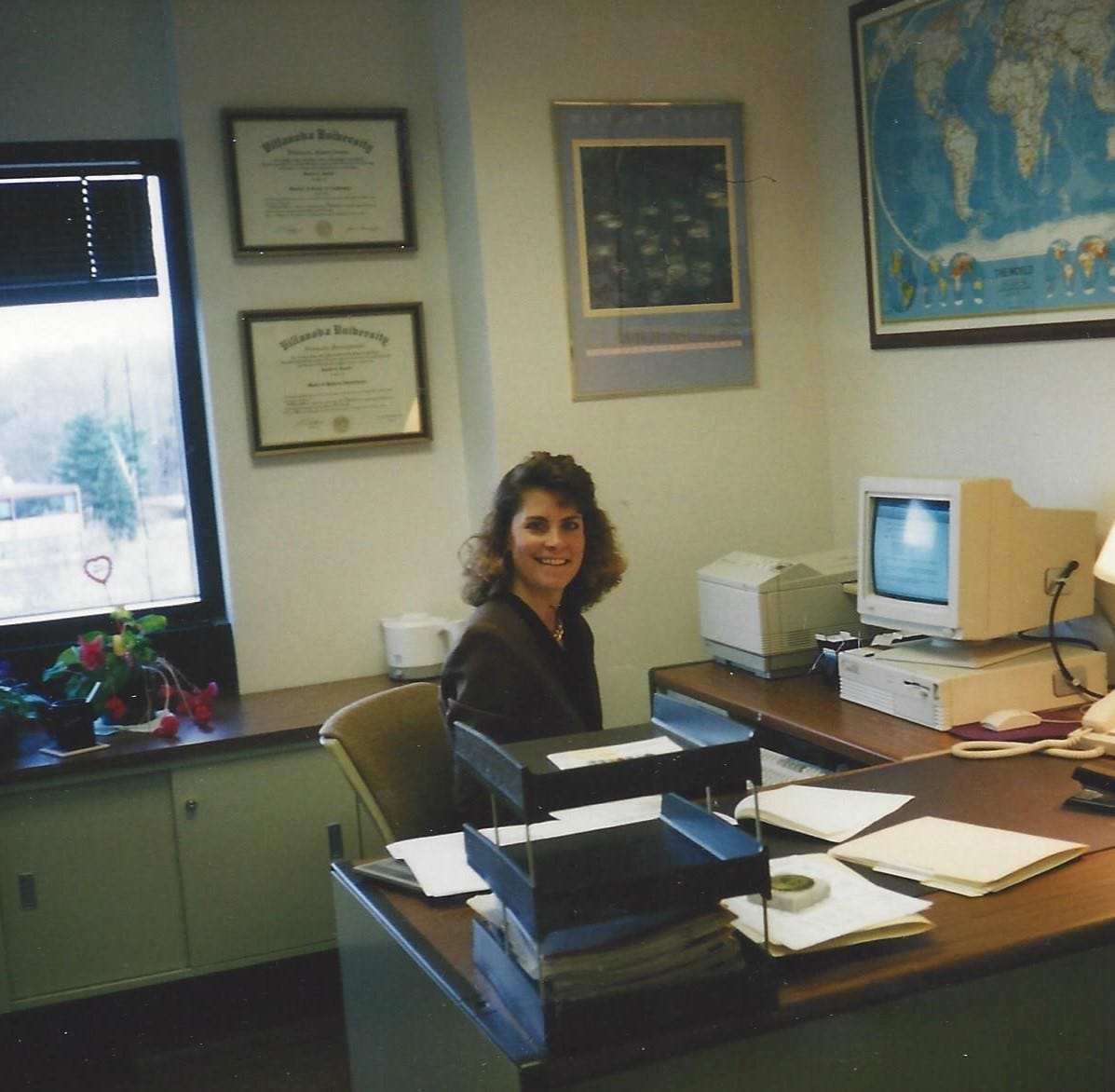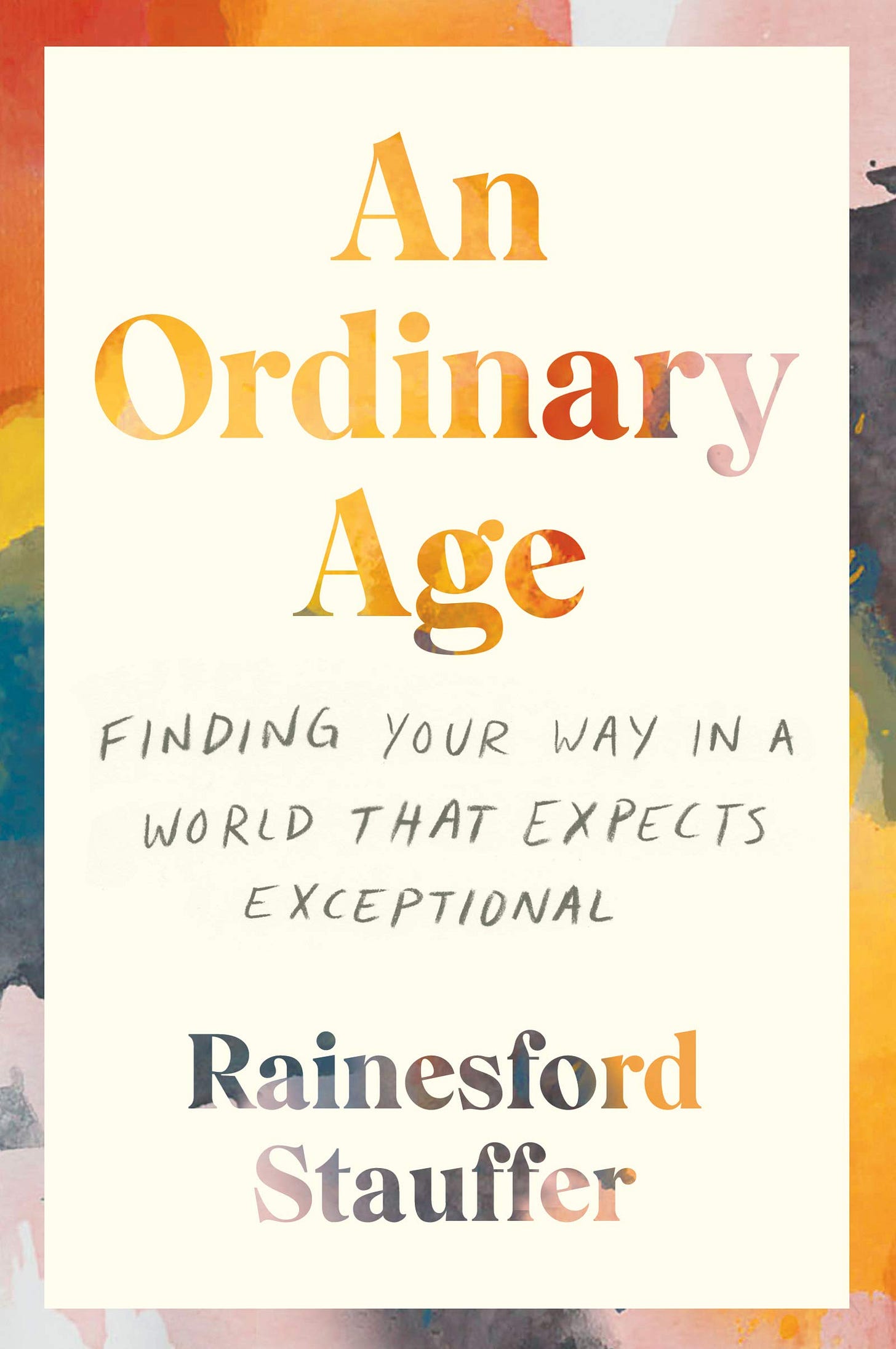Should you be as choosy as Goldilocks about a job?
Holding out for a job that’s just right vs. taking a less-than-perfect one

Nobody dreams of starting a new job that they don’t like or feel enthusiastic about. And yet, I bet it happens more often than you would think.
It happened to me. Heading off to my first day of work after graduating, I felt none of the euphoria I’d always imagined I would feel on the first day of my big-girl job.
The happy ending I’d scripted in my head had me at a cushy corporate job in the burbs, working in a marketing research department like the one I’d interned for the previous summer, earning a handsome salary that was the ultimate reward for all those hours I’d invested in studying.
Alas, despite my best efforts to find a job like that, the only job offer I had been able to turn up was with a marketing research agency in the city.
I might have been tempted to reject the offer and keep looking for a dreamier job, but the clock was ticking. It was December, and I was getting married in May. Besides needing to earn money to help pay for our Jamaican honeymoon, finding a permanent gig would also help us figure out where we would live.
So with no other prospects on the horizon, I took the job.

The job itself was a perfectly fine one. The agency had a good reputation, and I was paid a fair wage for someone with my education and experience. But unfortunately for me, I spent a lot of time ruminating on all the things I didn’t like about it.
First of all, I hated the commute. I relied on less than reliable commuter rail service to get into the city every day. I never knew when my train was going to be late. Air-conditioning wasn’t a given in the summertime, and on peak-hour trains, seating wasn’t either.
Although some people are drawn to a city's energy, I would have rather been working in a suburban office park and avoiding the city wage tax. At the time, Philadelphia was at its lowest ebb as far as climate, crime, etc. In fact, the week before my wedding, I became part of Philly’s crime statistics when a pickpocket stole my wallet as I walked through the train station.
The office climate wasn’t so bad, but it came with a twist—after an academic career in which I was usually at the top of the heap, for the first time in my life, I was somebody who was considered a little “less than.” At the agency I’d joined, most professionals had a Ph.D. after their names, and I did not. I was the token M.B.A.
As you might expect, I was handed lowly tasks like scaring up enough respondents for in-depth interviews or dealing with coding and data tabulation issues.
Though I focused more on the thorns than the roses, at least my work ethic overrode my negative thoughts, and I held myself to the same high-quality standards I had always set for myself. Though I wasn’t stoked to hit the office every day, I was learning how to conduct primary research from the ground up. And I enjoyed some of the tasks, like analyzing data, reviewing survey results, writing reports, and prepping presentations.

As it turned out, my tour of duty at the agency lasted only 11 months. After the wedding, I restarted my job search and landed a job with a small advertising agency in the burbs. That job wasn’t perfect either, but it would broaden my experience, get me a salary bump, and end my commute into the city.
And then just before I started my new job, I got a call from a recruiter about a senior market research analyst position I had applied for weeks before. Though the hiring process took a few months, eventually I had an offer to build out a market research role from scratch for the international division of a pharmaceutical company.
That job turned out to be the dreamy one that made me feel like all those years of study, internships, and resume-building had paid off.
And I never would have gotten that dream job if I hadn’t taken that agency job first.
If I had remained on the sidelines waiting for a better job offer to come along, I wouldn’t have gotten the primary research experience I needed to qualify for the corporate job. I needed to take that less-than-perfect job to get the perfect job later.
I know it’s not easy to decide whether to take a job that’s not exactly what you had in mind. If you scroll down to the Clippings section, there’s an article about factors to consider when weighing whether to take the less-than-ideal job.

Here are some things I wish somebody had told me during my stint at my less-than-perfect job:
Consider whether your job expectations are realistic
Looking back now, the agency job itself was fine; my unrealistic expectations were probably the bigger problem.
At the time, it didn’t seem fair that even though I had done all the right things, I couldn’t immediately find a position that financially rewarded and delighted me.
However, my expectations of finding a phenomenal job right out of the gate were unrealistic. I didn’t have the work experience I needed for my ideal job yet. The reason I had no luck finding the corporate market research job as a new graduate was likely that corporations wanted people with agency experience so they would understand the ins and outs of primary research.
I would have saved myself some angst if I recognized this.
Try to recognize the positive parts of a job, even if you don’t like it
Looking back now, I can see that the worst thing about my less-than-perfect job was my attitude–I focused too much energy on what I disliked. If I had noticed the positive aspects—like the hour and a half I had on the train to read every day or that working on the agency side was giving me the experience I needed to make me attractive to employers on the client side—my day-to-day life might have been happier.
Attitude may not be everything, but it can make a difference.
You might not be stuck at your less-than-perfect job as long as you fear
I probably would have felt less tortured if I had remembered that my tour of duty would have an endpoint, even if I didn’t know when that would be.
Looking back now, given that I went from a job I disliked to one I loved in only 15 months, I’m a little embarrassed that I complained so much.
Take heart if you find yourself in a job that’s not your favorite. It may not be long before your situation could be entirely different–as long as you do good work at your current job and continue discreetly searching for a job that suits you better.
Sometimes the best thing you can do for your career is just to get started
You may be tempted to freeze in place when you’re not in love with your available job options. But that’s a mistake. IMHO, the cure for career indecision is to start somewhere.
It’s one thing to pause and recalculate, then move forward after you get your bearings. But you have to be careful not to let a pause become paralysis.
Sometimes the most helpful thing you can do is take a job that offers you a chance to gain experience that will get you closer to where you ultimately want to be. I would not have qualified for that corporate job if I hadn’t spent a year working for a marketing research agency.
Given a choice between sitting on the sidelines indefinitely and getting to work, getting to work is almost always the better option.
Goldilocks wasted a lot of time trying to find something that was just right. She might have been happier had she just got on with things.

Author Rainesford Stauffer notes that, “Young adulthood was once presented as time blocked off for making mistakes and being imperfect, because how else were you supposed to know you were trying things and experimenting and putting yourself out there in a meaningful way?”
Stauffer notes how this mindset has changed for the worse: “For today’s emerging adults trying to craft a stable, fulfilling life, caution and precision and perfection feel like the qualities closest to a guarantee that you won’t fall short of the standards you set.”
Stauffer laments, “We want to be loved as a whole person; we want to be secure as a whole person. And increasingly, it feels like that wholeness means deleting any of the flaws or missteps, as if it’s as simple as dragging an eraser across them, rubbing them out of the story we tell about ourselves.”
According to Stauffer, “It’s trying to put out a million little fires at the same time: How do you outrun your most ordinary self? How are we actually supposed to embrace ourselves as we are? How do we let it go?”
There’s so much to share from An Ordinary Age, that it’s been named the May Book of the Month too. Look for more excerpts next week.
In the olden days, moms used to clip newspaper articles for their kids if they thought it was something they needed to know. I’m watching for things you might have missed that may be helpful to you.
This week’s clips:
Considering a job that you’re not sure you want? This Indeed.com article will help you weigh whether or not to accept.
Feeling dissatisfied with your job? This article from the career intelligence company Vault has some concrete suggestions about how to address your predicament.
Struggling with social anxiety? Dr. Marisa G. Franco suggests five affirmations to help you navigate social situations.







